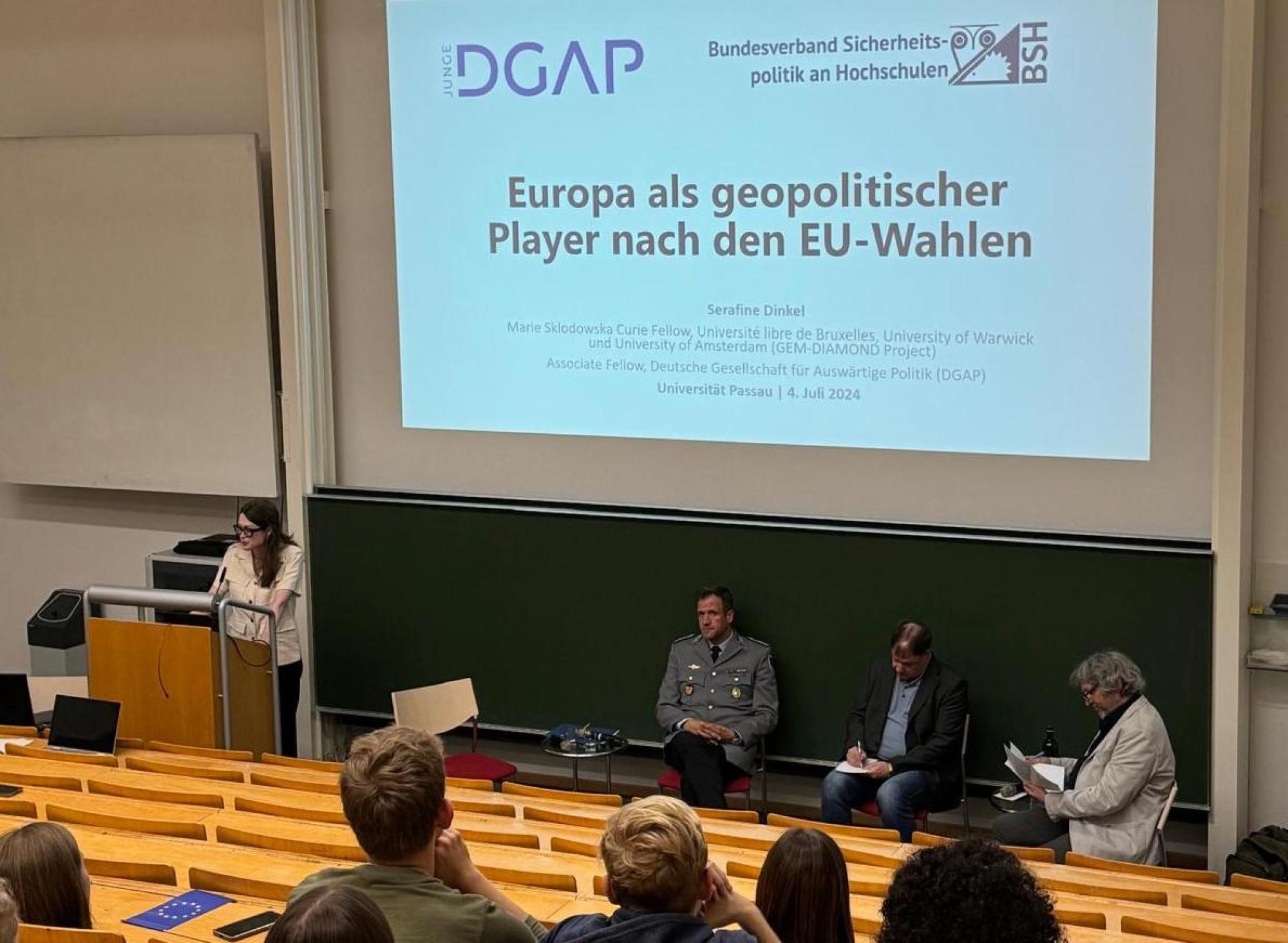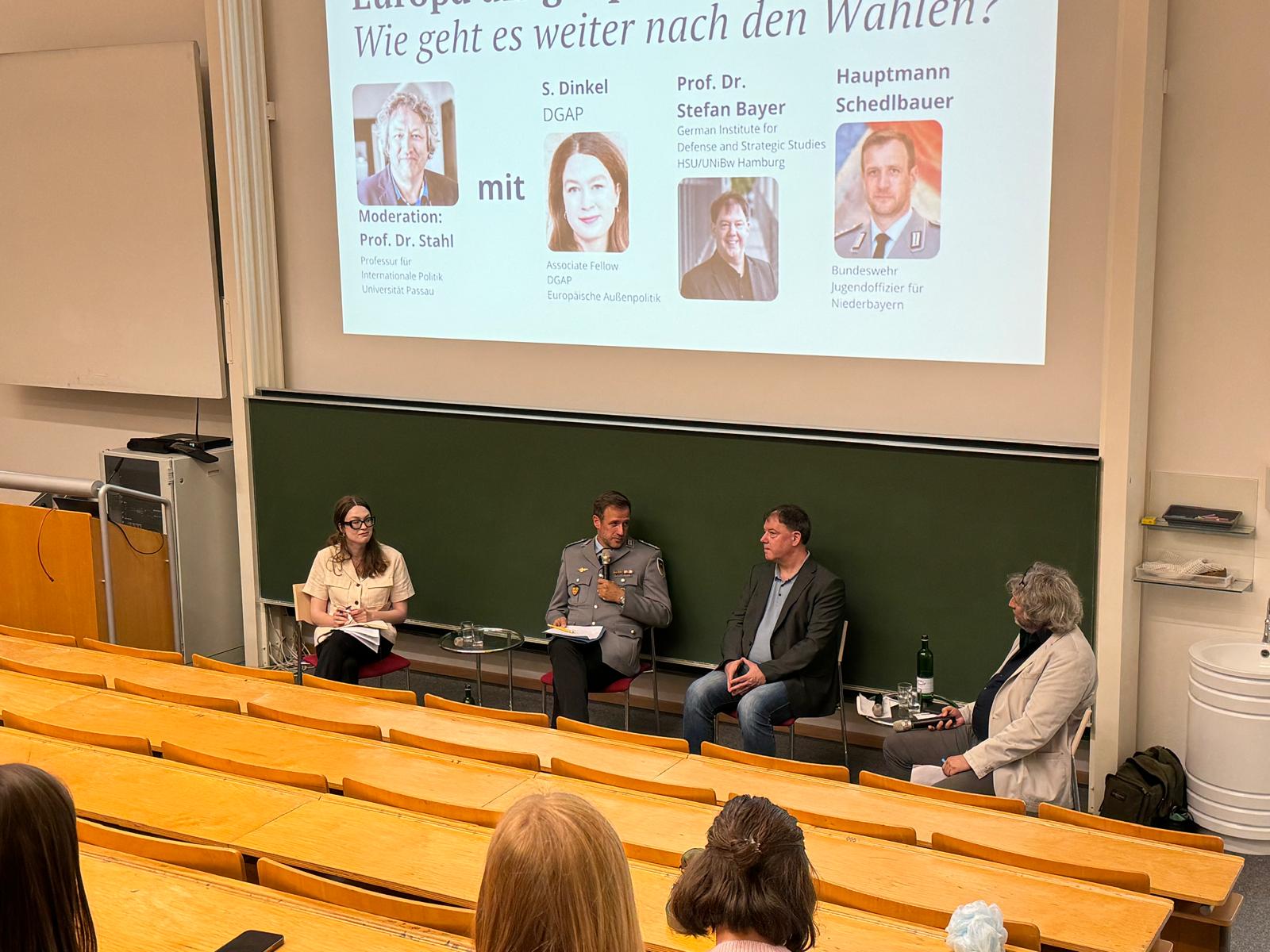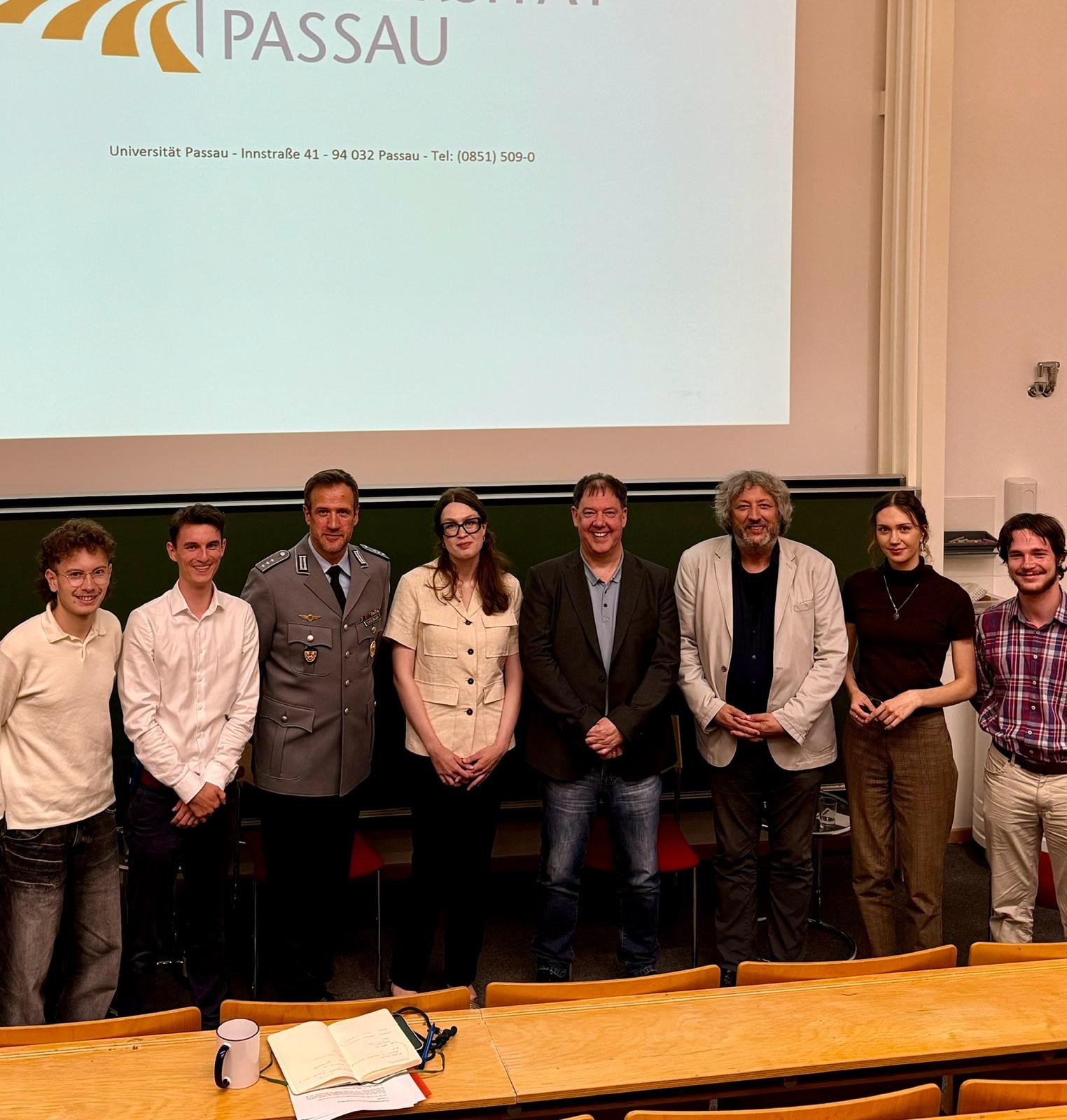Future Directions: The EU as a Geopolitical Player in the New Institutional Cycle
Serafine Dinkel gave a keynote speech and attended a panel discussion at the University of Passau.

On 4 July, GEM DIAMOND Fellow Serafine Dinkel gave a keynote speech followed by a panel discussion, on the topic of Europe’s geopolitical future after the EU elections in June and ahead of the new institutional cycle at the University of Passau. The discussion was hosted by the Foreign and Security Policy University Group (Bundesverband Sicherheitspolitik an Hochschulen) at the University of Passau, in cooperation with Junge DGAP Munich.
Europe as a Geopolitical Player
 In her input, Serafine Dinkel provided a comprehensive overview of the EU’s current position as a geopolitical player, touching on critical topics such as European enlargement to the east, the war in Ukraine, the role of parliamentarians, and the involvement of member states in security policy. She emphasized the importance of Hungary as a risk factor in security cooperation and discussed the possible consequences of the recent European elections, as well as elections in France and the upcoming vote in the US.
In her input, Serafine Dinkel provided a comprehensive overview of the EU’s current position as a geopolitical player, touching on critical topics such as European enlargement to the east, the war in Ukraine, the role of parliamentarians, and the involvement of member states in security policy. She emphasized the importance of Hungary as a risk factor in security cooperation and discussed the possible consequences of the recent European elections, as well as elections in France and the upcoming vote in the US.
Historical and Current Context
The EU’s ambition to be a geopolitical player is not new. Since the Maastricht Treaty, the EU has worked to build a stronger institutional framework for its Common Foreign and Security Policy (CFSP) and Common Security and Defence Policy (CSDP). Over the years, the EU has moreover leveraged its neighbourhood and enlargement policies as tools for stabilization and democratization, often touted as its most successful foreign policy instruments.
The ambition to become more geopolitical has been pursued vigorously under the ‘Geopolitical Commission’ led by Ursula von der Leyen since 2019, alongside the ‘Strategic Autonomy’ agenda initiated around 2016.
This ambition has practical implications, evidenced by the EU's civilian and military operations worldwide, which include thousands of personnel and numerous missions under the CSDP.
Enlarging the European Vision
The context of enlargement and neighbourhood policy has shifted significantly since February 2022. The war in Ukraine has added urgency to security debates, energy policy, and sanctions packages. The vision of European order is evolving, with countries like Ukraine, Moldova, and Georgia now candidates for EU membership, and the frozen enlargement process in the Western Balkans showing signs of revival. However, the EU also faces vulnerabilities, such as the potential for vetoes in foreign, security, and enlargement policies, highlighting the need for institutional reform.
Institutional and Political Framework
EU foreign policy operates within a complex institutional framework. In the realm of foreign and security policy, the Council of the EU, representing member states, holds decisive power, while the European Parliament (EP) has a more consultative role. Nonetheless, the influence of the EP and key personalities within the Commission should not be underestimated. The composition of the European Commission, renewed with each election cycle, is significantly shaped by the EP, which underscores the importance of election outcomes.
Insights from the Panel Discussion
 Moderated by Prof. Dr. Bernhard Stahl, Chair of International Politics at the University of Passau, the panel included Prof. Dr. Stefan Bayer and Captain Klaus Schedlbauer. Prof. Bayer, head of the Geopolitics and Strategies Research Unit at the German Institute for Defence and Strategic Studies (GIDS), brought an economic perspective to the discussion, particularly focusing on 'Green Defence.' Captain Schedlbauer added practical insights from his experience in the military, helping to assess the implications of theoretical approaches on German defence policy and the Bundeswehr.
Moderated by Prof. Dr. Bernhard Stahl, Chair of International Politics at the University of Passau, the panel included Prof. Dr. Stefan Bayer and Captain Klaus Schedlbauer. Prof. Bayer, head of the Geopolitics and Strategies Research Unit at the German Institute for Defence and Strategic Studies (GIDS), brought an economic perspective to the discussion, particularly focusing on 'Green Defence.' Captain Schedlbauer added practical insights from his experience in the military, helping to assess the implications of theoretical approaches on German defence policy and the Bundeswehr.
Conclusion
The discussion, attended by around 60 participants, painted a not overly optimistic picture of the EU's short and medium-term future. Factors raised included the rise of extreme, Eurosceptic forces, the challenges posed by institutional reforms, the uncertain future of transatlantic relations, and the ongoing war in Ukraine.
Despite these challenges, there is hope for deeper European security cooperation in the long term. The panelists agreed that the current challenging situation offers the EU an opportunity to further develop as a geopolitical player, undertake necessary reforms, and strengthen security policy cooperation among member states.
The current climate offers a chance for the EU to solidify its role as a geopolitical player, pursue necessary reforms, and enhance security cooperation among member states. Engaging citizens and ensuring broad societal support will be crucial in navigating this complex landscape and achieving the EU's long-term ambitions.
